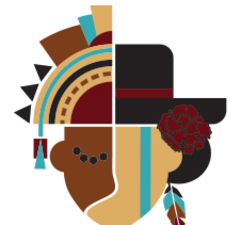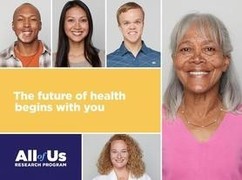|
September 12, 2018
 In This Issue:
As part of the OMH observance of Hispanic Heritage
Month, this special issue of FYI is devoted to activities and resources related
to Hispanic/Latino communities.
According to the Centers for Disease Control and Prevention, Sickle Cell Disease affects approximately 100,000 people in the U.S. and occurs among
1 out of every 16,300 Hispanic-American births.
Federal Grants
-
HHS/National Institutes of Health (NIH): Addressing the Etiology of Health Disparities and Health Advantages among Immigrant Populations (R01) Grant.
Deadline is October 5. Learn more.
-
HHS/NIH: Addressing Health Disparities through Effective Interventions among Immigrant Populations (R01 Clinical Trial Optional) Grant.
Deadline is October 5. Learn more.
Scholarships / Fellowships
-
Hispanic Association of Colleges and Universities (HACU): HACU National Internship Program. Internships are available to Health Services and Natural Sciences students enrolled in Hispanic Serving Institutions.
Deadline is October 26. Learn more.
-
Medical Library Association (MLA): MLA Scholarship for Minority Students. African American, Hispanic, Asian, Native American, or Pacific Islander American individuals who wish to study health sciences librarianship are eligible to apply.
Deadline is December 1. Learn more.
HAPPENING TODAY! Webinar
-
Centers for Medicare & Medicaid Services/Office of Minority Health (CMS OMH): Spanish language webinar. From Coverage to Care (C2C) Spanish Partners / Colaboradores sobre la Cobertura del Cuidado de Salud. This webinar will provide information and resources C2C partners can use to help Hispanic/Latino consumers understand and use their health care coverage. This webinar will be presented in Spanish.
September 12, 2:00 pm ET. Register.
Conferences
-
The California Endowment: Registration is open for the 6th Annual Central Valley Latino Conference, Strengthening the Roots. Speakers and workshops will address topics including cultural competency, mental health, substance abuse and LGBTQ health.
September 20-21 in Visalia, CA. Register.
-
Vision y Compromiso: Registration is open for the 16th Annual Promotor and Community Worker Conference, Building Bridges for a United and Resilient Community.
October 4-6 in Ontario, CA. Register.
-
Latino Social Workers Organization (LSWO): Registration is open for the 2018 LSWO Conference. Workshops will address topics such as immigrant health, family health, child health, mental health and substance abuse.
October 17-19 in Chicago, IL. Learn more.
Deadline for early bird registration is September 14. Register.
 |
|
-
National Latina/o Psychological Association (NLPA): Registration is open for the 2018 NLPA Conferencia, Navigating the Mosaic of Latinx Culture: Advocating for Growth, Intersectionality and Resilience.
October 18-21 in San Diego, CA.
Deadline for early bird registration is September 14. Register.
|
Spanish Language Resources
 |
|
-
HHS: StopBullying.gov is now available en español. StopBullying.gov provides information from various government agencies on the definition of bullying, cyberbullying, who is at risk, and how you can prevent and respond to bullying.
-
HHS/Substance Abuse and Mental Health Services Administration (SAMHSA): The Opioid Overdose Prevention Toolkit is now available in Spanish as Prevención de la Sobredosis de Opioides: Manual de Instrucción. It offers strategies to health care providers, communities and local governments for developing practices and policies to help prevent opioid-related overdoses and deaths. Learn more | Download the full toolkit (PDF).
|
-
HHS/NIH: All of Us Research Program Spanish website. The All of Us participant experience is now available in Spanish. Learn about the program, get help from the All of Us support center, sign up, and even receive newsletter updates—all in Spanish. All of Us also offers free downloadable materials in Spanish to help community members and others spread the word about the program. Learn more.
-
HHS/NIH, Office of Communications and Public Liaison (OCPL): NIH Spanish Health Information Portal. This website offers free, reliable health information in Spanish. It features monthly content from NIH News in Health and an Ask Carla column to help you locate NIH health resources in Spanish. Learn more.
 |
|
-
HHS/NIH, National Eye Institute (NEI): National Eye Health Education Program (NEHEP). If you're Hispanic/Latino and age 40 or older, you have a 50 percent chance of getting type 2 diabetes, which can lead to diabetic eye disease. Diabetic eye disease often has no early warning signs. The best way to keep it from causing vision loss or blindness is to find and treat it early. For resources in English and Spanish, please visit NEHEP.
|
-
HHS/NIH, National Cancer Institute
(NCI): NCI
offers cancer information in Spanish through cancer.gov/espanol and their Facebook
and Twitter accounts. Trained information
specialists provide personalized responses, in Spanish as well as English, to
questions about cancer via the NCI Contact Center, which can be accessed by e-mail, live chat or by calling 1-800-422-6237.
-
HHS/NIH, National Heart, Lung, and Blood Institute (NHLBI): The NHLBI Center for Health Information. Health Information Specialists are available
to provide bilingual information on diseases of the heart, lung, blood, and
sleep disorders by e-mail or by calling 301-592-8573.
 |
|
-
US Department of Agriculture (USDA): The USDA Food Safety and Inspection Service website is available in Spanish. Users can access recall information, press releases, public health alerts and Pregúntele a Karen, a guide to expert knowledge on handling and storing food safely and preventing food poisoning. Learn more.
|
-
The University of Miami, in collaboration with the NIH National Institute on Minority Health and Health Disparities (NIMHD): Interventional (Clinical Trial) study. Hispanic Secondary Stroke Prevention Initiative (HISSPI). Researchers are seeking Hispanic/Latino volunteers, 18 or older, with a history of an ischemic or intra-cerebral hemorrhagic stroke within the past five years and who currently reside in Miami-Dade County. Study to be conducted at the University of Miami in Miami, FL. Learn more.
-
The University of California, San Francisco (UCSF), in collaboration with the NIH National Institute of Diabetes and Digestive and Kidney Diseases (NIDDK): Observational study. Inflammation, Diabetes, Ethnicity and Obesity Cohort (IDEO). Researchers are seeking obese Hispanic/Latino and Chinese volunteers, 25-65 years old, who have either diabetes type 2 or a metabolic syndrome. Study to be conducted at UCSF in San Francisco, CA. Learn more.
 |
|
-
HHS/NIH: All of Us Research Program. The
overall aim of this longitudinal study is to enroll 1 million or more volunteers who will share unique health data over the course of 10 years. This will include answering survey questions and sharing electronic health records. Some participants may also be asked to provide blood or urine samples. NIH researchers will ask you to answer more questions from time to time. It's up to you to decide how much information you want to share. Join All of Us.
|
|
The book The Health of Aging Hispanics: The Mexican-Origin Population provides an overview of health-related issues impacting older adults among the Hispanic population in the United States, particularly Mexican Americans. Examining topics such as region-specific issues, cultural concerns, and disparities, this edited work offers insight on the ways policies and access to care significantly contribute to the health status of Mexican-American elders.
To view this title or request additional information, search the online catalog.
|
|
|
|